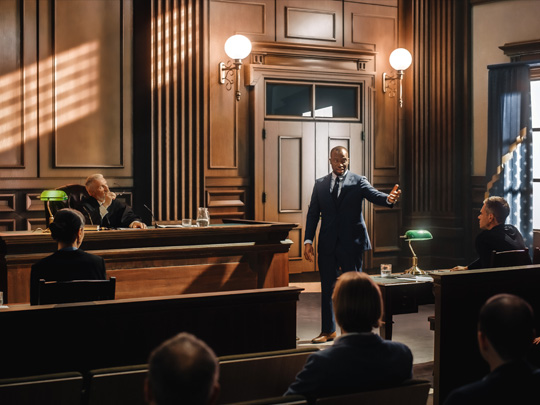Being investigated, arrested or charged with a crime is a low point in anyone’s life, receiving a conviction can completely change the course of your future. Depending on the severity of your charge, the worst case scenario is a prison sentence. Most people are aware that the potential results from a criminal case include ending up with a criminal record.
A common misconception is that there are only two outcomes: guilty or not guilty. However, there are more possible outcomes of your criminal case.
Possible Outcomes
Guilty and not guilty are the two that most people expect, other potential results of your criminal case include the following:
- DISMISSAL: Dismissal with prejudice is one of the most optimal outcomes of a criminal case. This means that your charges are dropped and cannot be brought again. Usually, these determinations are granted as part of a plea agreement or when there is insufficient evidence to proceed with the case.
- NOLLE PROSEQUI: Nolle prosequi is a dismissal without prejudice. Unlike a standard dismissal, your charges could be filed again in the future. For example, if further evidence is presented at a later date or you commit the same crime again, the charge may be refiled. However, there is a time limit on when charges can be refiled depending on the nature of the crime.
- NOT GUILTY: A not guilty verdict is received if a jury determines your guilt was not proven by the court beyond reasonable doubt. If you are deemed not guilty, you cannot be charged with the same crime again.
- GENERAL CONTINUANCE: General continuance covers situations where you may be technically guilty but there are mitigating factors. In these cases, a judge will defer their determination and set the case to be dismissed after certain conditions are met. General continuance is usually only granted to people without prior convictions.
- DEFERRED FINDING: Deferred finding is similar to general continuance except it comes with a finding from the judge. This means there is sufficient evidence to support a conviction and your record cannot be expunged but you still have time to meet the necessary conditions to have the charge dismissed.
- PLEA AGREEMENT: Plea Agreement Plea agreements are a common way of resolving criminal cases. This involves agreeing with your lawyer and the court to make a certain plea in exchange for a certain sentence. Instead of going to trial and facing the uncertainty of a jury verdict, you may be able to submit a guilty or no contest plea in exchange for lighter sentencing.
- GUILTY AFTER TRIAL: Guilty After Trial If your case goes to trial and you are found guilty by a judge or jury, you will face criminal sentencing from the judge. Your sentence will be determined based on the severity and circumstance of the crime and may include fines, jail time, or probation.
What Your Results Rely On
The potential results of a criminal case will depend on the type of crime you are being charged with, the facts surrounding the crime and the strengths of the prosecutor’s case against you. If you want a chance at the most favorable sentence, a dismissal or a not guilty verdict, hire a reputable and successful criminal defense attorney.
A criminal defense attorney specializes in an array of practice areas, here are a few: white-collar crimes, drug offenses, sex offenses, probation violations and violent crimes, providing comprehensive legal representation to clients facing a range of criminal charges in federal, state or juvenile court.

